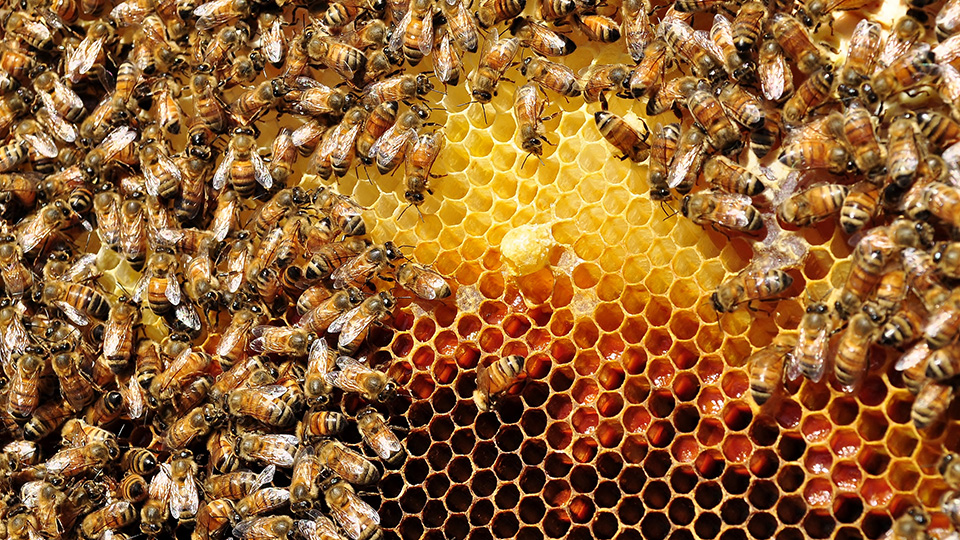by Aimee LaBrie
Sustainability is trendy. Most of us are accustomed to bringing our reusable mugs to the coffee shop for refills and recycling plastic in the appropriate bins. Some take it a step further and buy hybrid cars or bike instead of driving. But these actions are more than just fads — they're part of a growing understanding that our decisions — big and small — have the potential to directly impact the planet in significant ways. From companies that map out the most efficient trucking routes to turning the lights off when you leave the room — searching for smarter ways of living is essential as we look toward the future.
At Rider, this commitment to more sustainable practices goes far beyond a slight adjustment in lifestyle. Inspired by President Rozanski’s signing of the American College and University President’s Climate Commitment (ACUPCC) in 2007, the University has made great strides on all fronts to integrate more efficient practices across the board. Along with recycling receptacles and bike racks in convenient corners of the campus, the President committed to delivering sustainability education to all Rider students and the community at large. Over the last several years, he and his colleagues have done just that.
A New Minor: in the Classroom | Photo Gallery
Recognizing that the focus on sustainability crosses multiple disciplines, Dr. Laura Hyatt, Associate Dean, CLAES and Associate Professor of Biology, and several faculty members developed a minor in sustainability in 2009 available to all students, regardless of their core major.
"Numerous sustainability and science studies programs were cropping up in New Jersey and we wanted to offer something that is uniquely suited to Rider and our students," Hyatt says. “We developed the program to show students the connections between the ways we do our business, the way we treat other people and the way we treat the planet — so, it’s also inherently about ethics and social responsibility."
The number of students who pursue this minor has doubled every year for three years in a row, as have the class offerings. This spring, Dr. Brooke Hunter is teaching the very first 400-level capstone class, The Sustainability Studies Seminar. In this course, students will focus on a very specific sustainability project on Rider’s campus: the new Trigen Energy Plant. This plant allows Rider to create some of its own energy to provide electricity, heating and cooling to the academic quad. In turn, the university saves money and uses a cleaner form of energy.
Dr. Hunter describes the student’s involvement. “Their overall goal is to raise awareness and understanding about trigeneration energy on campus; what it is, how it works and why it’s important to our environment and society. They will do this by designing and implementing a “before and after” survey and developing various activities for the campus.”
Dean Mosto and Dr. Daniel Druckenbrod, who both have expertise in environmental science, are team teaching the introductory course in sustainability studies this spring. Druckenbrod also teaches the introduction to environmental science course for the minor. “This field is relatively new, but it’s growing rapidly,” he says. “We want to prepare students to be conversant in these subjects, and to add to the discourse in meaningful ways.”
Rider faculty also help to facilitate internships that connect to the minor at companies, organizations and nonprofits whose commitment to sustainability lies at the heart of their mission. As Druckenbrod explains, “We’ve had students intern at Greener by Design, Climate Central, and the Langhorne, PA Historic Preservation Board. These opportunities, combined with the classroom research and discussion, set students up for greater professional success later.”
Students are not the only ones engaged in these efforts—Rider also has a green course certification project where faculty pledge to implement reduction practices in their classroom such as assigning online readings rather than requiring students to buy textbooks. Dr. Hyatt sees this as an extension of their essential responsibilities as leaders. “Our campus is our unwritten curriculum and we need to pay attention to how we’re teaching students about standard operating procedures.”
The Campus Landscape: in Every Day Life
When you walk into Melissa Greenberg’s office, there’s no doubt where her passion lies. A Broncs Go Green mug sits on her desk and the office is decorated with a solar panel and a picture of the Lorax, with a quote from Dr. Seuss on it: “Unless someone like you cares a whole lot, nothing is going to get better. It’s not.” It is evident that Melissa cares—a whole lot.
Greenberg was hired in 2008 as one of the first sustainability managers in the country. Not long after she arrived, she started a student Eco-Rep program and now has ten active Eco-Reps on campus. Since then, sustainability efforts have grown as quickly as enrollment in the minor. Her main initiatives focus on four R’s: reduce, reuse, refuse and recycle.
For starters, all new construction now requires a minimum LEED silver certification, a standard that’s not only been achieved but surpassed; in 2012, a new academic building achieved a LEED gold rating. Thirty-five percent of the University’s energy comes from renewable energy credits and energy meters monitor use in almost all of the buildings. More than 8,000 pounds of food waste is converted to organic fertilizer each week, and the university supports three active honeybee hives and a community garden. These efforts alongside regular events have gotten Rider nationally recognized for the last four years in a row in the The Princeton Review's Guide to 322 Green Colleges.
Numerous bike racks, 40 water bottle refill stations on both campuses, a Go Green website, a community garden, three thriving honeybee hives, Green Campus Tours — these are some of the smaller but no less impactful efforts that are part of daily life at the university.
Stephen Schwartz ’15, geoscience major and sustainability minor, is also the official student bee keeper and an eco rep. He’s seen the interest in sustainability grow among his peers in just the short time he has studied at Rider. “There’s a lot more awareness of what’s actually going on and growing concern about the future of energy. Students are seeing that sustainability concerns will factor into their future employment—regardless if you’re a business major or a science majors—most companies now are implement programs that require a deeper understanding of energy issues.
Ongoing Initiatives: in the Community
Students are not passive recipients of these efforts. Many spend part of their time educating their peers as green-T-shirted eco reps. Currently, Greenberg has four senior eco reps working with her who have been on the team since they came to Rider, as well as others who are committed to sharing what they know. The eco reps’ main task is to raise awareness on campus among their peers, faculty and staff. They also teach a freshman seminar about sustainability and offer residence hall programs focused on campus living, water conservation, energy use and trash, day to day activities that conserve energy, save resources and reduce costs.
“These are simple, manageable tasks like shutting off your lights, not taking really long showers, recycling shampoo bottles — all things that you can do by just thinking about your choices a split second longer,” Greenberg says.
As campus ambassadors who work directly with their peers, eco-reps are able to share their messages and see immediate impacts in the behavior of other students. They have hundreds of active followers on Facebook and Twitter, and use those platforms to educate their followers about various environmental issues on a regular basis. They also publish a weekly column called “The Eco-Rep Green Corner” in Rider News.
In addition, the student-run radio station. The Broncs 107.7 FM, airs “Sustainable You,” a weekly broadcast that offers ways to be more sustainable that are both thoughtful and manageable. The show brings in a variety of guests ranging from fellow students to professionals in the field and even some celebrities to discuss about sustainability topics. Listen to audio archives.
The Office of Sustainability has also hosted several noted celebrity environmentalists through its green speaker series. This fall, actor Adrien Grenier from HBO’s Entourage was a featured speaker, and actress Rosario Dawson and activist Erin Brokovich have visited campus to discuss their interest in green initiatives. Grenier’s message was simple: “If everyone just became a little more aware of his or her own personal impact on the earth, real change would ultimately result.”
Raising awareness has become a primary function for the Office of Sustainability, and the Green Film and Speaker Series has been very successful in bringing to light important environmental issues and how they affect us. Now in its fifth year and with audiences growing for every speaker and film, the Rider community’s engagement has clearly risen.
Finally, students and members of the community are regularly invited to take part in green events like Earth Day, the Recyclemania competition, Campus Sustainability Day, World Water Day and Don’t Trash It Recycle It, among others.
The Wider World: in the Future | Photo Gallery
If you listen to those tuned in to environmental issues related to the need for greater sustainability efforts, you can begin to feel a little hopeless. Watch movies in the film series such as Plastic Planet (plastic kills) or Chasing Ice (glaciers are vanishing) and it starts to seem that maybe we’ve come too far to turn back the clock. Greenberg, however, remains optimistic about how even small steps toward conserving resources can make a difference.
For her own part, Dr. Hyatt emphasizes that the need to integrate more sustainable solutions is growing, particularly as the population increases and natural resources dwindle.
“Students are inheriting problems we never had to face and they need tools that we’ve never had to give them,” she says. “One of the things I focus on in my class is the notion of systems — how, when you do something within one system, it will affect other parts, sometimes in anticipated ways, sometimes in unanticipated ways. And the positive changes we make today most definitely set us up for a better tomorrow.” She pauses. “I truly believe that.”
For the fourth year in a row, Rider and Westminster Choir College will wear caps and gowns at graduation made from 100 percent, post-consumer recycled plastic bottles — with each gown representing about 23 bottles. As students process, they truly represent — in mind, spirit and body — hope for our future.












